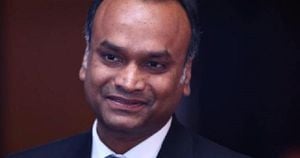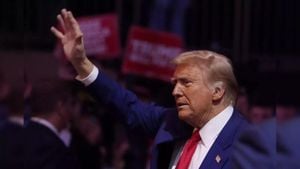Former President Donald Trump’s legal woes have come to the forefront once again with the involvement of his longtime advisor Michael Cohen, whose actions have led to serious legal repercussions for Trump. The hush money payments made during the 2016 election campaign for covering up alleged affairs have attracted the attention of prosecutors, highlighting the intricacies of campaign finance laws and their violations.
The transition from the Oval Office to the courtroom for Trump has sparked intense debates among political analysts and legal experts. Cohen’s testimony about the payments made to adult film actress Stormy Daniels and others has been pivotal, showing how Trump's financial dealings could lead to significant charges, including filing false business records and potential felony charges. It’s like watching a legal drama, but this is real life, and it has serious consequences.
During the past few months, the spotlight has been on features of Cohen’s statements, which have been challenged and corroborated through various pieces of evidence. These include payment records, communications through emails, and Cohen’s own descriptions of his actions at the time. The more they look, the more details surface, painting a picture of alleged deceit and manipulation.
The lawyers representing Trump assert the payments weren't campaign contributions. They argue they were personal expenses, which could conveniently help Trump dodge any severe legal ramifications. Yet, this stance doesn’t settle the questions surrounding why the payments were made and their timing during the election, which raises red flags. Was this merely about personal life, or was there more at play? The discussions buzzing around these legal boundaries are almost as heated as the political debates.
Adding fuel to the fire is Trump’s response to the investigation. He has repeatedly criticized it, tagging it as partisan politics—a tactic he's familiar with, as he’s often positioned himself as the victim of systemic attacks. By branding these legal inquiries as part of the Democratic agenda against him, Trump hopes to rally his supporters, turning legal scrutiny back to political warfare. This strategy, though, might not hold up under the scrutiny of law.
Meanwhile, the New York State court system has become the backdrop for this saga. The grand jury was convened to evaluate evidence and determine whether charges should actually be filed against Trump. With each session, anticipation builds, as many are left wondering just how deep this rabbit hole goes. Could Trump be facing actual jail time? Opinions are split, and the stakes couldn't be higher.
Cohen himself has transitioned from being Trump’s right-hand man to his fiercest critic, highlighting the unpredictability and drama around this case. Once loyal, Cohen has become the central figure against Trump, giving testimony to prosecutors about the behind-the-scenes actions he engaged with the Trump Organization. His own legal battles have put him on this rollercoaster ride, filled with betrayals and revelations.
Legal experts point out how campaign finance law complicates what might seem like basic personal dealings. They assert it’s about more than mere payments; it’s about the intent behind those payments and whether they served to influence the election outcome. The convoluted paths of money transfers, especially if tied directly to campaign-related acts, crisscross with legal boundaries and expectations, painting Trump’s actions as under scrutiny by not just legal standards but also public perception.
Adding to the tension is the atmosphere within Trump’s inner circle. Some former associates have been summoned to testify about their knowledge of the payments, making loyalists question their alliance. It creates unease, as former advocates weigh the risks of standing by Trump against the dangers of being drawn unintentionally toward legal trouble themselves.
Trump’s case isn’t just about the current allegations; it stands as part of a larger narrative surrounding his presidency and his dealings before and during his time as president. It poses significant questions about power dynamics, transparency, and accountability going forward as America navigates the aftermath of his presidency. The fallout has resulted not only from potential legal ramifications but also from how this episode could reshape the political battlefield for years to come.
Through the lens of history, this saga is poised to enter the annals of cases involving high-profile individuals and controversies. The unresolved tensions, combined with the high stakes of political identity, have shaped not only the legal framework at play but also the mental models the public holds surrounding such cases. This investigation may be another episode but remains part of the much larger story of governance, personal responsibility, and the long shadow cast by public figures.
Both supporters and opponents of Trump are holding their breath as the grand jury deliberates, weighing the merits of the evidence against the former president's defenses. Will the legal system deliver justice, or will it succumb to political pressures? The answers may come sooner rather than later, as this high-profile case continues to develop. All eyes are on New York as the next chapter promises to reveal more about Trump's past actions and the challenges he faces moving forward.



